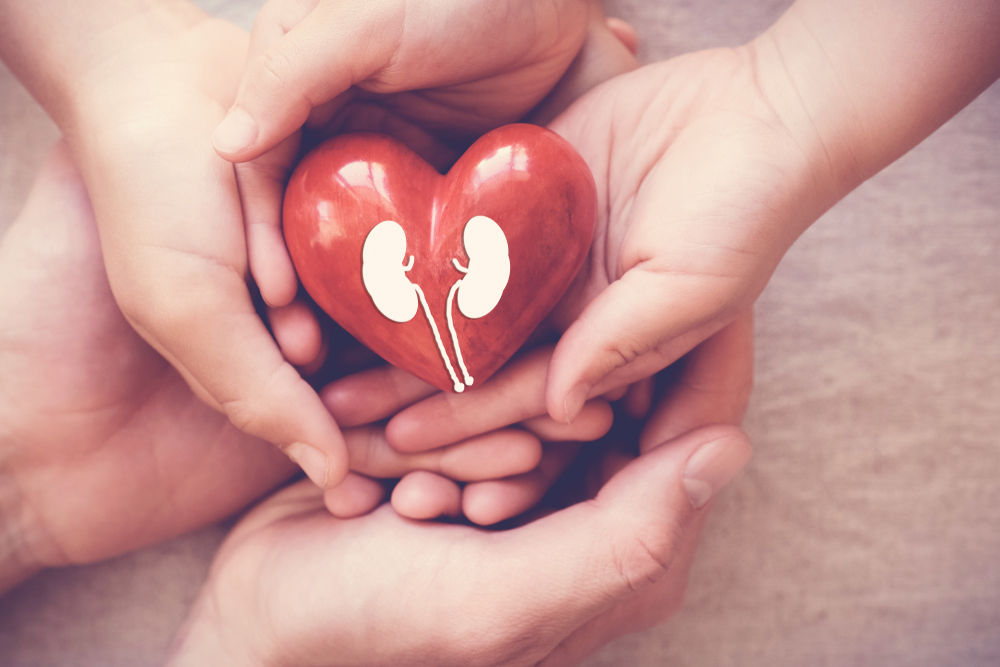Traveling with Heart Disease & CKD: Tips for Safe and Stress-Free Trips

Strong 8k brings an ultra-HD IPTV experience to your living room and your pocket.
Do you love to travel but worry about managing chronic kidney disease (CKD) or heart disease on the go? Do concerns about medications, dietary restrictions, and access to medical care make you hesitant to plan a trip? If so, you are not alone. Many people with CKD and heart disease feel uncertain about traveling, but the good news is that with the right precautions, it is entirely possible to explore the world while having chronic conditions.
Traveling offers a chance to discover novel places, create lasting memories, and reconnect with loved ones. While managing a chronic condition adds an extra layer of planning, it should not stop you from enjoying life’s adventures. The key lies in smart preparation, careful health management, and a proactive approach to your needs.
Moreover, an individual can also consider participating in heart disease clinical trials run by Prime Revival Research Institute to investigate novel therapy alternatives and help advance ground-breaking studies that could enhance heart disease patients' future treatments.
In this article, you will find practical strategies to help you travel with ease, whether you are flying across the country, taking a road trip, or embarking on a cruise. With these tips, you can travel with ease and comfort regardless of your chronic conditions.
1. Pre-Travel Preparation: Laying the Foundation for a Safe Journey
A well-structured travel plan significantly reduces potential health risks. Taking the time to address medical, logistical, and dietary considerations before departure is essential.
Consultation with Healthcare Providers
Before making travel arrangements, schedule an appointment with both a cardiologist and a nephrologist to assess fitness for travel.
Discuss the following with your healthcare provider:
- Suitability for travel based on the current health status
- Necessary vaccinations, particularly for international destinations
- Medication adjustments to accommodate time zone changes
- Emergency action plan for managing unexpected symptoms or complications
Additionally, request a medical summary detailing:
- Current diagnosis, including CKD stage and heart condition specifics
- Prescribed medications, including dosages and administration schedules
- Dietary restrictions and fluid limitations
- Emergency contact details of primary healthcare providers
Carrying a copy of this summary (both physically and digitally) ensures quick access to medical information in case of an emergency.
Selecting an Appropriate Destination
Certain destinations may pose challenges for individuals with CKD and heart disease. Factors to consider include:
- Proximity to healthcare facilities, including hospitals and dialysis centers
- Climate conditions, avoiding extreme heat, cold, or high altitudes that may exacerbate symptoms
- Availability of heart- and kidney-friendly food options
For dialysis patients, platforms such as global dialysis or similar platforms can help locate dialysis centers at the travel destination.
2. Packing Essentials: Ensuring Health and Comfort
Packing efficiently minimizes disruptions to medication routines and overall well-being. A well-prepared traveler remains comfortable and prepared for any situation.
Medications and Medical Supplies
To avoid any interruptions in treatment, it is recommended to pack:
- A sufficient supply of all prescribed medications, plus extra doses in case of delays
- Medications in their original prescription packaging to comply with security regulations
- A pill organizer for ease of medication tracking
- A blood pressure monitor and glucose meter (if necessary)
- Extra medical supplies, including syringes or catheter kits for dialysis patients
It is important to carry medications in carry-on luggage to avoid loss or damage due to misplaced checked baggage.
Hydration and Dietary Considerations
Balancing hydration is crucial for individuals with CKD and heart disease. Recommendations include:
- A refillable water bottle, ensuring fluid intake is monitored
- Low-sodium snacks (e.g., unsalted nuts, protein bars, kidney-friendly fruits)
- A pre-researched list of restaurants offering heart- and kidney-friendly meal options
Comfort and Accessibility Aids
Long journeys can be physically demanding, necessitating additional comfort measures:
- Compression socks to improve circulation and minimize swelling
- A supportive travel pillow for proper posture
- A travel-sized CPAP machine, if applicable
- Mobility aids (e.g., cane, walker, or wheelchair) for ease of movement
3. Nutrition While Traveling: Maintaining a Balanced Diet for Heart Failure & CKD
Dietary restrictions are a primary concern for CKD and heart disease patients. Careful meal planning ensures that nutritional needs are met without compromising health.
Restaurant Selection and Meal Planning
Before traveling, research restaurants that cater to low-sodium, low-potassium, and heart-healthy diets. Calling ahead to discuss menu modifications can be beneficial.
Fluid Management
Excessive fluid intake can be harmful. Keep track of all sources of liquid, including:
- Water
- Soups and broths
- Ice
- Fruits with high water content
Nutritional Guidelines
- Minimize processed and high-sodium foods to maintain optimal blood pressure and kidney function.
- Choose grilled over fried foods to promote heart health.
- Practice portion control, as restaurant servings may exceed recommended dietary limits.
- Avoid potassium-rich foods (e.g., bananas, tomatoes, oranges, potatoes) if restricted by a healthcare provider.
4. Medication Management: Adhering to Treatment Plans
Strict adherence to prescribed medications is essential for health stability. Strategies to maintain consistency include:
- Setting phone alarms as reminders for medication administration
- Always carry an updated medication list
- Adjusting medication schedules for time zone differences in consultation with a physician
- Storing temperature-sensitive medications in an insulated case
Consider carrying a doctor’s note while traveling with injectable medications, which can prevent complications at security checkpoints.
5. Emergency Preparedness: Navigating Unexpected Situations
Despite meticulous planning, emergencies can still arise. Being well-prepared reduces potential risks.
Researching Medical Facilities
Before departure, identify hospitals, clinics, and pharmacies at the travel destination. Save their contact information for quick access.
Emergency Contacts and Travel Insurance
- Store emergency numbers for local ambulance services.
- Purchase travel insurance that covers pre-existing conditions and emergency dialysis (if applicable).
Flying with CKD and Heart Disease
- Requesting airport assistance if walking long distances is challenging.
- Stand and stretch regularly to prevent blood clots during flights.
- Limit caffeine and alcohol consumption, as they contribute to dehydration.
6. Managing Stress: Enhancing Travel Enjoyment
Travel should be a pleasurable experience. Implementing relaxation techniques can help mitigate stress:
- Pace Yourself – Avoid excessive physical exertion by incorporating rest breaks.
- Manage Stress – Practice breathing exercises and mindfulness techniques.
- Prioritize Sleep – Maintain a consistent sleep routine to prevent fatigue.
- Listen to Your Body – If feeling unwell, rest and seek medical attention promptly.
Conclusion
Managing heart disease and CKD should not hinder the ability to travel and enjoy life. With proactive planning, thoughtful packing, and adherence to medical recommendations, individuals can embark on safe and fulfilling journeys.
Key Takeaways:
- Plan – Consult with healthcare providers and research medical facilities.
- Pack strategically – Bring necessary medications, snacks, and comfort items.
- Monitor diet and hydration – Stick to a kidney- and heart-friendly diet.
- Stay stress-free – Travel at a comfortable pace and prioritize well-being.
With the right preparations and mindset, traveling remains an achievable and enriching experience. Whether visiting family, exploring a new city, or embarking on a well-earned vacation, individuals with CKD and heart disease can do so safely and confidently.
Note: IndiBlogHub features both user-submitted and editorial content. We do not verify third-party contributions. Read our Disclaimer and Privacy Policyfor details.






